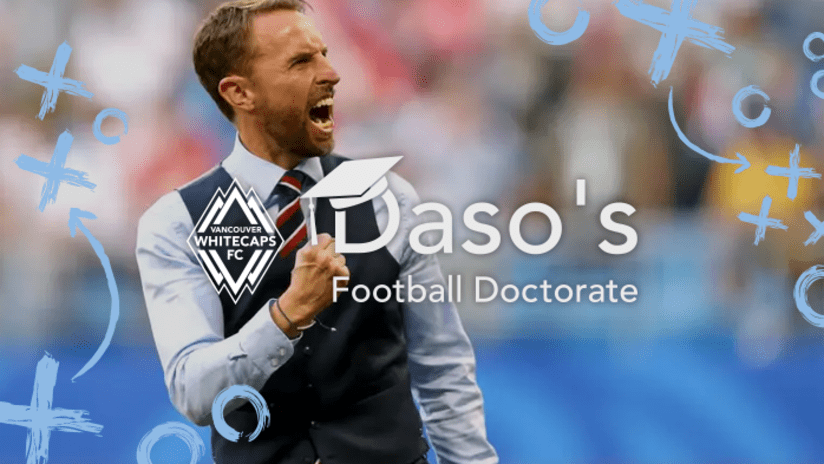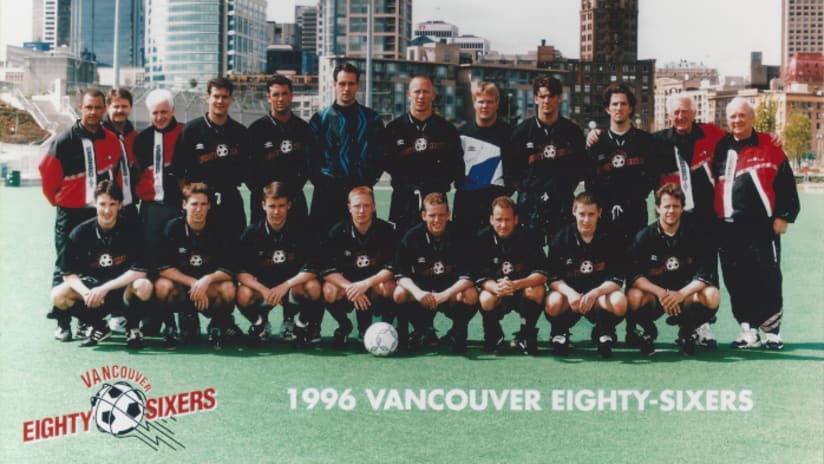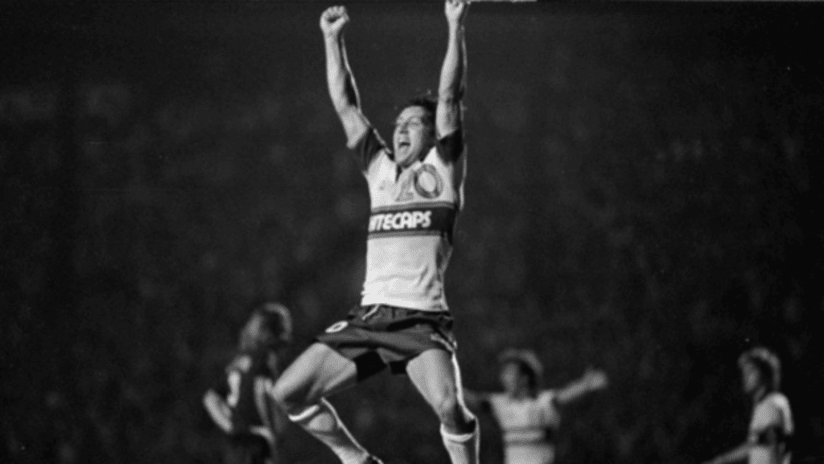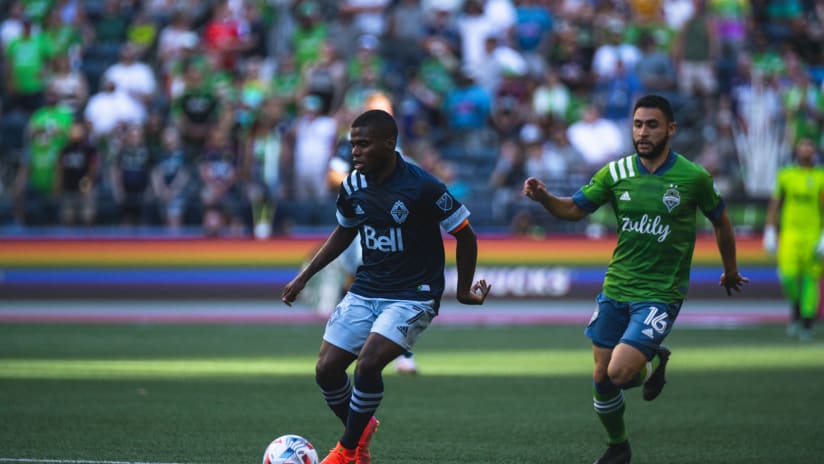Nick Dasovic, head coach of the Whitecaps FC Development Squad, spent nearly two full years earning his UEFA Pro License, the highest coaching license in world football. Many don’t know the work, dedication, and degree of education that goes into this course. In this blog, Daso will tell us about people he met along the way as he went through his program with the Scottish Football Association, and the lessons he learned from each person.
Today, Daso focuses on England MNT manager Gareth Southgate. Below is a transcript of a Q&A with Southgate, as conducted by English League Managers Association chairman Howard Wilkinson, discussing Southgate's baptism into the managerial world of football.
INTRODUCTION
Before entering the managerial side of football, Gareth enjoyed a highly decorated career as a professional footballer. His career in the English Premier League spanned over 500 games and included stints at Crystal Palace, Aston Vila, and Middlesbrough. He also represented England for a total of 57 caps, which included a trip to the 1998 World Cup as well as the 1996 and 2000 European Championships.
How important was coaching education?
I became the manager of Middlesbrough with only a B-Licence. Since I was involved with the English national team, I never had my summers off, which meant I could not enroll in any licence programs. As such, I had to wait until I retired from international football. I found the licence program very informative and I particularly enjoyed having the opportunity to share ideas and opinions through informal discussions with the group. I truly believe that the more education you have the better job you will do.
Would you change anything if you could go back?
In hindsight, I would have preferred to have begun my managerial career at the academy level. Ideally I would have then graduated to the reserves and then started as a manager of a club playing in the lower leagues to gain some experience. For me, it happened so fast. When Steve McClaren left Middlesbrough to take the England job, I offered to help any new manager adjust to their new position. However, instead of assisting, the chairman offered me the outright managerial job. This, I recognize, would never happen in other walks of life. However, the players were great and made my experience at the club both memorable and enjoyable.
What do they not teach you at a coaching course?
They do not teach you how diverse of a role it is. You have to be prepared to coach not just your players, but also your staff. You need to be ready to fire people and hire people. You also have to be prepared to make tough decisions that often affect the future of your players. You also never really get an opportunity to enjoy your victories since you are always dealing with too many other influences.
What part did you enjoy the most and what did you find most difficult?
As a manager, it is very satisfying to see former players further their careers and experience success. It is always a pleasure when a former player makes contact with you, proving that I did my job in establishing meaningful relationships with my players. Players need to know that you care about them not only when they are at the park but when they leave it as well. While I enjoyed most of my experience, I must admit the pressures of leading a club that had high expectations and was experiencing financial troubles was particularly taxing. It was particularly stressful trying to maintain morale around the club while relegation loomed over the club.
Who did you come to value on your staff?
The importance of the assistant manager towards the dynamics of the managerial team was important to me but was under-appreciated by the chairman and directors. The job that the assistant did was not always in the eyesight of the directors. The assistant would take the pressure off of me by keeping the small issues at bay, and dealing with them himself. You need to coach and lead not only the players but also the staff. You need to be careful of having too many people on your staff with similar characteristics. People that can come in and help with your weaknesses are vital, but you need to know your weaknesses. Sometimes, the technical staff that you inherit after taking a position may have a hidden agenda as they might feel hard done by not getting the job ahead of you.
How do you get players to believe and trust you?
In dealing with players it is important to be as honest as you can with them, without compromising the integrity of the football club. Players that are not playing or dressing always need to be talked to. I did this all the time, except once with one of my star players and it ruined our relationship. It takes a long time to build trust, but only an instant to destroy it.
Could you work with a player you didn’t like?
In short, you have to. However, if you are lucky enough to manage a top football club with a large budget, then you can go out and buy players that fit your philosophy and vision. Unfortunately, if you do not have the finances, like us, then you have to settle on buying third choice players that are often flawed either physically, technically, or mentally. Fortunately for us, the group of players we had shared my principles and philosophy. For the most part we did the best we could with what we had. As a coaching staff we treated everybody fairly, and we did not give any less to the player that was causing us problems.
How did the media change once you became the manager?
There were six press conferences a week, which made it a very repetitive business. You had to be careful of what you said and how you said it, as the players would repeat what you said in their interviews as well. You are accountable for your team and you need to be able to defend the players at all times, even in difficult moments, your comments can influence the team be it positively or negatively. The intensity of the media spotlight is far greater when you are a manager than when you are a player.
Is it possible to have a normal life in football?
No. It is impossible to have a normal life. It is a 24/7 lifestyle. It is so difficult to shut off your responsibilities to the club when you are constantly answering phone calls from players, the press, agents, and even the chairman. When the day is done you can physically go home but mentally the club is always on your mind. It is therefore important that you learn to be strong and find time for yourself whenever possible.
What would be said at your first meeting with your staff and players?
I would set about letting everyone know my principles, standards, philosophy, and structure. The respect of the football club is vital as is the history, culture, and tradition. If, however I came into a position where the culture is broken then I would set about changing it.
SUMMARY
I thought that the interview was very insightful as Gareth spoke truthfully, and let us know exactly what he went through as a young and inexperienced manager. I was amazed that he went straight from the academy U-13’s to manage the senior team, which took a lot of courage. I could relate to a lot of what he was saying as it reminded me of my own challenges after accepting the interim manager’s position at Toronto FC. When he spoke about being one of the boys to all of a sudden being their boss I knew what he was talking about. I learnt a lot through my own experience but I believe that I have learned equally as much from Gareth’s experience.
This blog was edited for brevity by Maxim Fossey.




